Study, work or travel in the UK. British
culture and life.


Course
/ Boarding
Find a boarding school in the UK
|
|
Study, work or travel in the UK. British
culture and life.
|
|
||
|
|
|
|
||
 |
||||
|
|
|
|
||
 |
||||
|
Course
/ Boarding
|
||||
|
Find a boarding school in the UK
|
||||
|
Sections:
|
Boarding school |
 |
| Scholarships | ||
| Eton College | ||
| Links | ||
|
Related pages:
|
Guide (information for all types of student) | |
| Language school (study English in the UK) |
 Prince William at Eton (aged 18) |
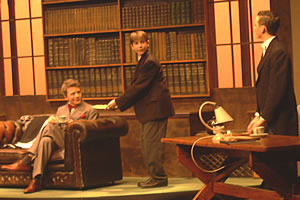 A school play at Harrow ("Another Country") |
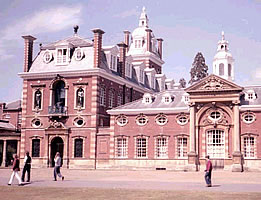 Wellington College (a public school) |
 |
The
Independent Schools Guide 2008/2009 Author: Gabbitas Educational Consultants Publisher: Kogan Page Date: April 2008 |
 |
Boarding
Schools and Colleges Editors: Wendy Bosberry-Scott Publisher: John Catt Educational Date: June 2008 |
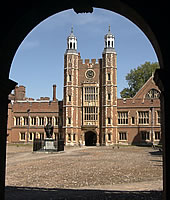 Lupton's Tower (1520) |
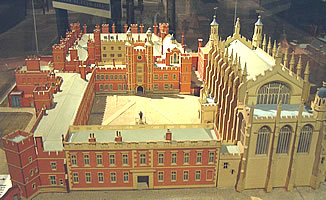 A model of the college |
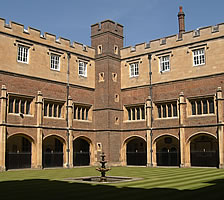 The Cloisters |
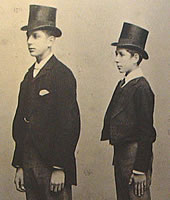 Eton uniform in about 1880 |
The boys still wear a formal school uniform: a black tailcoat
and waistcoat and pin-striped trousers (top hats have not been worn since
the 1940s). Students at Eton are all boarders (some other public schools
accept dayboys as well). Boys live in dormitories in a "house"
(run by a "house master"). They have their own small rooms with
a bed and desk. The main team sports which are played are rugby and football
in the winter and spring, and either cricket or rowing in the summer.
Other popular activities include drama and music. There are daily services
in the chapels. Senior boys may take part in military training (in what
is called the Combined Cadet Force), or choose to do social service in
the community.
|
|
|
|